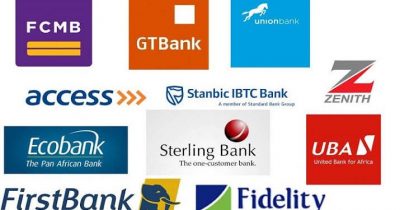Eleven banks charged their customers N714.61bn for electronic fees and other forms of commissions in the first nine months of 2022.
According to the nine-month financial reports of the banks, this is a 16.92 per cent increase from the N611.21bn earned by the banks from the income source in the corresponding period of 2021.
The banks included: Zenith Bank Plc, Sterling Bank Plc and Subsidiary, Stanbic IBTC Holdings Plc, Wema Bank Plc, Fidelity Bank Plc, and Union Bank of Nigeria Plc.
Others were: United Bank for Africa Plc, Unity Bank Plc, First Bank of Nigeria Holdings Plc, Guaranty Trust Holding Company and Subsidiary Companies, and Access Holdings Plc.
The fees and commissions included: credit related fees and commissions; account maintenance charges; corporate finance fees; e-business income; asset management fees; and commission on foreign exchange deals.
Others were: commission on touch points; shared service fees; income from financial guarantee contracts issued; account services, maintenance and anciliary banking; and transfers related charges among others.
Of the banks, UBA (N138.08bn) made the most from fees and commission and Unity Bank (N5.34bn) made the least. Zenith Bank Plc made N117.90bn from fees and commission; Wema Bank made N12.02bn; Fidelity made N25.04bn; Stanbic IBTC made N72.47bn; Union made N12.65bn; Sterling made N19.84bn; Access made N133.49bn; GTCO made N66.94bn; and FBN made N110.84bn.
According to Access Bank, fees and commissions expenses are fees charged for the provision of services to customers transacting on alternate channels platform of the group and on the various debit and credit cards issued for the purpose of these payments.
It said, “They are charged to the group on services rendered on internet banking, mobile banking, and online purchasing platforms. The corresponding income lines for these expenses include the income on cards (both foreign and local cards), online purchases, and bill payments included in fees and commissions.”
The Central Bank of Nigeria created new guidelines for bank charges on January 1, 2020. The new guideline mostly impacted card maintenance fees, charges for hardware tokens, and the amount that can be paid for electronic transfers.
According to the President of the Bank Customers Association of Nigeria, Uju Ogubunka, banks were making a lot from bank charges, burdening bank customers.
In an earlier interview with The PUNCH, He said, “The issue of excess charges has been a major source of concern to us as an association. We have since been fighting it and we will not stop.
“However, I must say that in most cases, the excess charges imposed on bank customers are not deliberate but a result of a capacity-building problem. That is when new recruits or inexperienced hands handle transactions and overcharge.
“Also, most times, when the banks overcharge, they are made to repay customers with prime interest plus two percent.”


